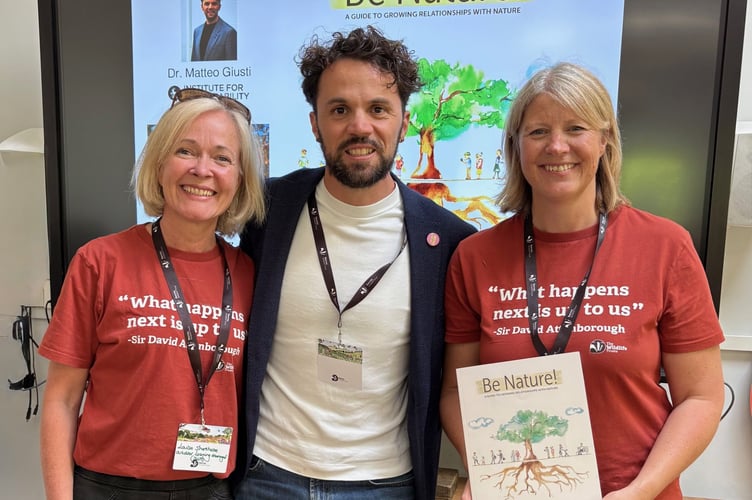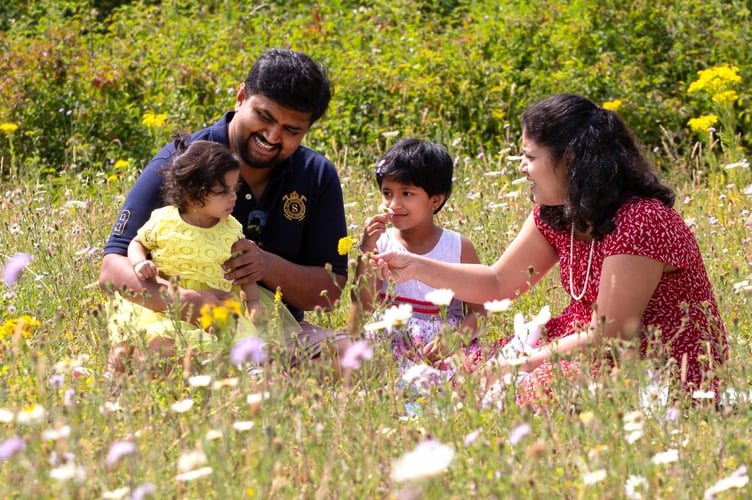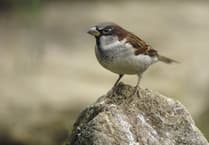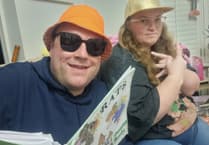
It’s widely said that connections with the natural world are good for our mental health and physical wellbeing. I’ve stressed this many times in this column, especially during the Covid shutdowns early in this decade.
It shouldn’t surprise us; for over 99 per cent of our existence, human-kind lived in a “natural” world of forests, plains, mountains, rivers, and open skies. But it’s often forgotten in our always-connected, must-be-busy society.
Help is at hand. Surrey Wildlife Trust (SWT) has just published a fantastic new 90-page book called Be Nature on how to grow a relationship with the natural world. It’s free to download, and physical copies are also available.
The book has been written by Dr Matteo Giusti, researcher in sustainability science at University of Surrey’s Institute for Sustainability, with Louise Shorthose and Kirsty Porter of SWT’s education team.
Be Nature offers a step-by-step approach that people of all ages, including teachers and course leaders, can take on a journey to build a closer emotional and practical relationship with our environment.
The authors stress that it isn’t a strict set of rules, but rather a source of inspiration and guidance.
Among its prescriptions for nature connectedness is to have fun in nature – even finding joy in playful activities like splashing in puddles or chasing butterflies! For adults, engaging in nature can reignite curiosity and joy, reminding us of the simple pleasures the natural world offers. When we play in nature, we rediscover a sense of wonder and excitement.
The simplicity of nature helps us reflect on our relationship with the environment, encouraging us to focus on our wellbeing.
Amazing nature experiences capture our attention and fill us with awe. Whether a breathtaking sunset or standing before a powerful waterfall, these moments create a “wow effect” that stays with us. It’s as if nature is putting on a grand show, reminding us of its power, vastness, and beauty.
Then there are surprising natural experiences – delightful, unplanned moments that catch us off guard in the best way. The rarity and spontaneity of these adventures make them truly special.
Mindful experiences immerse us fully in the moment, from building sandcastles on a peaceful beach to exploring a forest filled with fascinating plants and animals; these capture our attention and allow us to lose ourselves in nature.
The authors also highlight creative experiences that use the arts to deepen our connection with the natural world, and physical activities which allow us to engage with the landscape. Climbing trees, building forts, running in open fields or hiking help us connect with nature while also enjoying the benefits of staying active.
Sensory-rich activities engage us fully with the environment. It might be foraging in a dense forest, feeling the textures of different plants, listening to bird song or smelling the earthy scents of rain and soil. This sensory involvement encourages us to slow down, observe, and immerse ourselves in our surroundings.
We also benefit from encounters with non-human life, which help us learn to appreciate their values and see that we are part of a larger, vibrant community of life.
Whether we are encouraging comfort in nature or nurturing a spiritual bond, these elements can enrich our lives and leave us with a stronger and lasting relationship with the environment.
To download a free copy of Be Nature or to buy a printed copy visit https://benature.info





Comments
This article has no comments yet. Be the first to leave a comment.